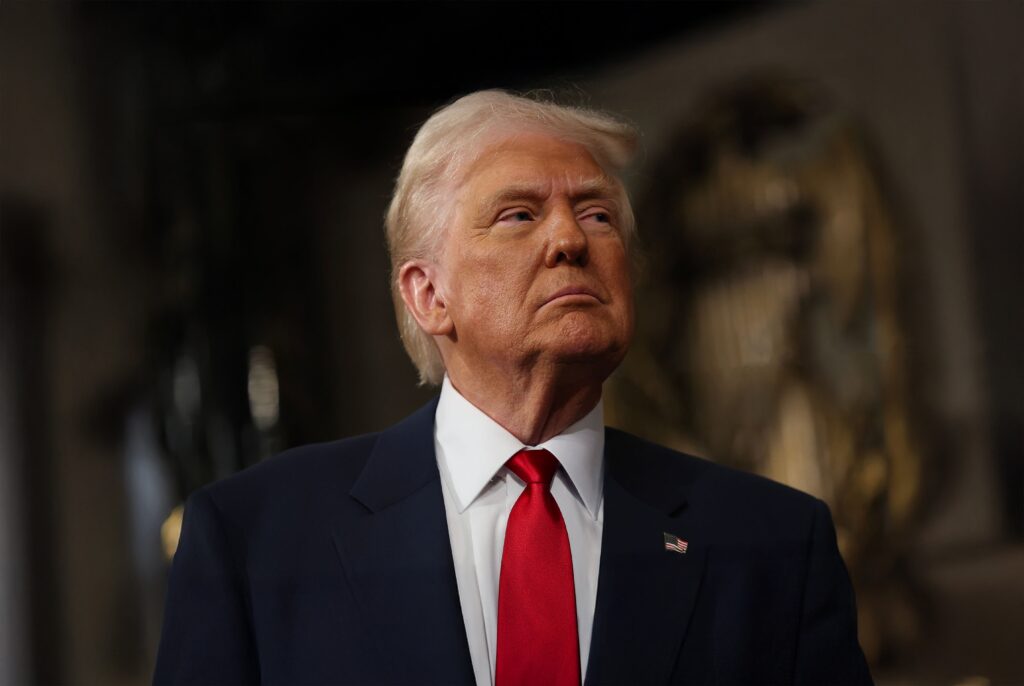A US appeals court has struck down most of Donald Trump’s tariffs, declaring them unlawful. The ruling challenges one of his most aggressive trade policies and sets the stage for a high-stakes Supreme Court fight.
The judgement voids Trump’s “reciprocal” tariffs imposed on dozens of nations. It also targets levies against China, Mexico and Canada, three of America’s largest trading partners.
Judges rule Congress holds tariff powers
In a 7-4 decision, the US Court of Appeals for the Federal Circuit dismissed Trump’s legal defence. The judges ruled his tariffs were “invalid as contrary to law”.
They said the International Emergency Economic Powers Act does not give presidents authority to impose tariffs. According to the court, tariff-setting is a responsibility that belongs strictly to Congress.
The ruling will take effect on 14 October, unless the administration secures Supreme Court intervention.
Trump lashes out at decision
Trump reacted angrily on his social media platform Truth Social. He warned that removing the tariffs would “literally destroy the United States”.
He accused the appeals court of political bias and insisted America would win in the end. He argued that lifting the tariffs would weaken the nation financially and strategically.
Court rejects emergency justification
Trump had relied on the IEEPA to defend his policy. He declared a trade emergency and claimed imbalances threatened national security.
The court rejected this reasoning. Its 127-page ruling explained that the IEEPA “neither mentions tariffs nor sets limits on presidential power to impose them”.
The judges stressed that Congress has historically reserved this authority for itself and only delegates it explicitly.
Businesses and states push back
The case followed lawsuits filed by small companies and a coalition of states. They challenged Trump’s executive orders from April.
Those orders imposed a 10% tariff on nearly every country. They also introduced “reciprocal” tariffs against dozens of others. Trump hailed the move as America’s “liberation day” from unfair trade.
Earlier this year, the Court of International Trade had already ruled the tariffs illegal, though its decision was frozen during the appeal.
Tariffs on allies struck down
The appeals court decision overturns tariffs on Canada, Mexico and China. Trump had argued these were needed to combat drug imports.
However, levies on steel and aluminium remain untouched. They were introduced under separate presidential authority.
White House warns of severe consequences
Before the ruling, White House lawyers warned of catastrophic results. They argued that striking down the tariffs could cause an economic collapse comparable to 1929.
They said the US might be unable to repay trillions already committed by foreign partners. Such a scenario, they claimed, could lead to financial ruin and endanger national security.
The decision also raises questions about deals some countries struck with Washington for reduced tariff rates.
Supreme Court may have final word
The case is now expected to head to the Supreme Court. The justices have repeatedly ruled against presidents who tried to expand power without explicit congressional approval.
During Joe Biden’s term, the court blocked climate regulations and struck down student debt forgiveness. Both were overturned under the “major questions doctrine”.
The Supreme Court must now decide whether Trump’s tariff programme is unlawful overreach or legitimate presidential action.
Conservative majority looms large
Trump suffered defeat in the appeals court, where only three of eleven judges were Republican appointees.
The Supreme Court, however, holds a different balance. Six of its nine justices are conservatives, including three appointed by Trump himself.
That majority could prove decisive in a case that may reshape presidential powers over trade for years to come.


